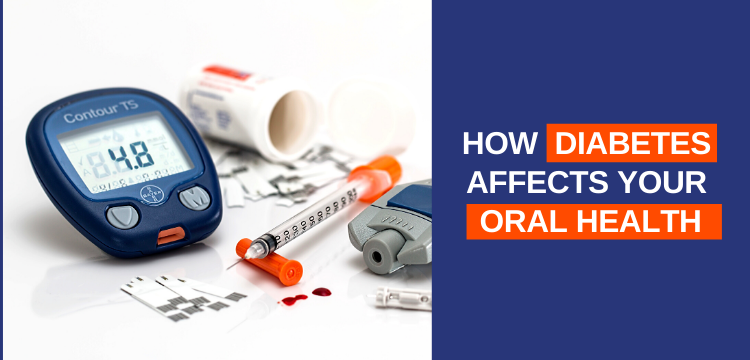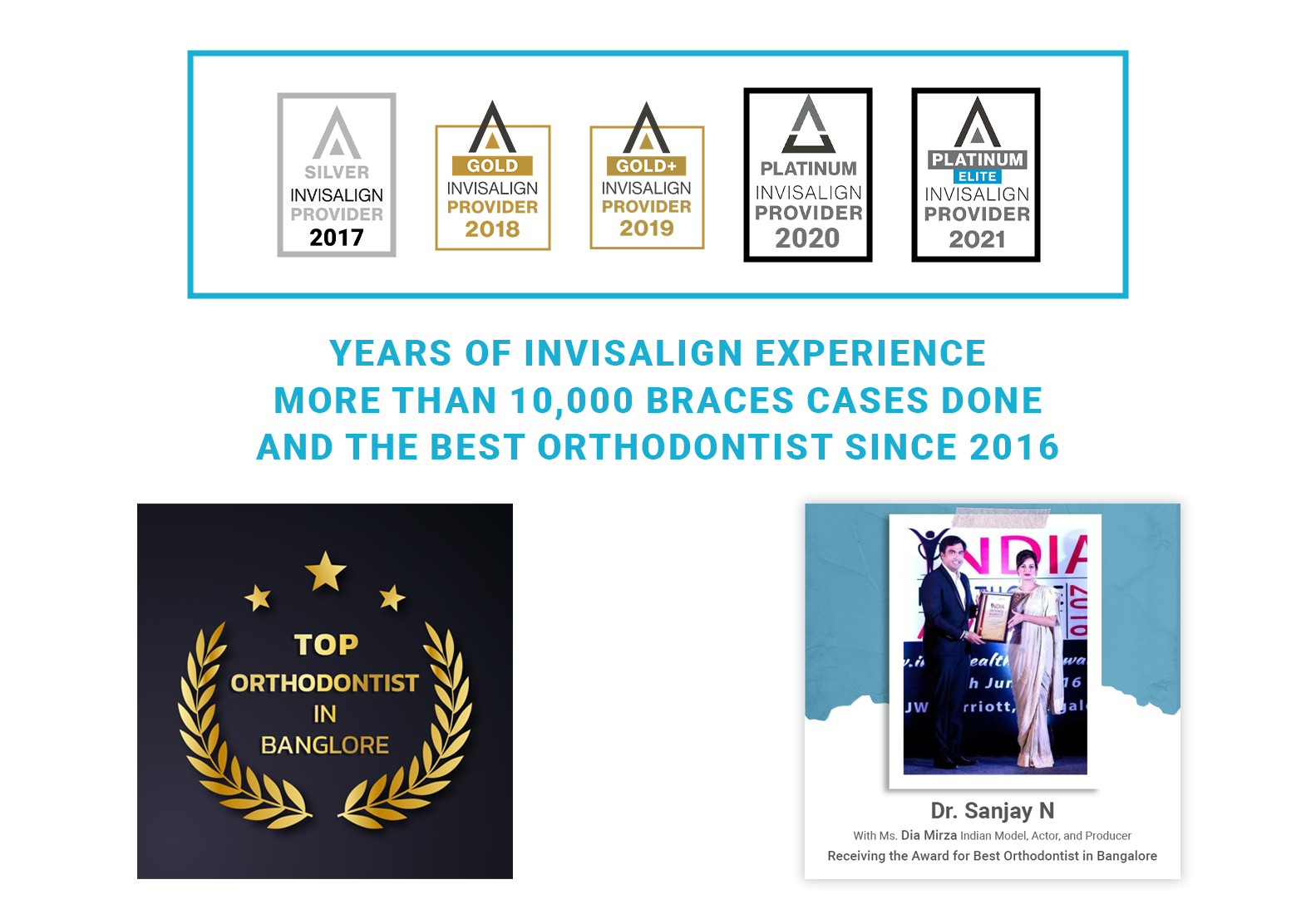
Have you been wondering, ‘How diabetes affects your oral health’? Diabetes is a chronic, metabolic disease that is most common in the world. A report by the World Health Organization predicts that diabetes will affect 366 million people by the year 2030. The report also states that though diabetes is prevalent in men than women, most women have diabetes.
Periodontal or gum disease is an infection of the gums and bone support (periodontal tissues) surrounding the teeth. Patients with diabetes have a greater chance of developing periodontal disease. Gum disease can cause bad breath, chewing difficulties, and even tooth loss. Moreover, it can slow the healing process during the treatment of oral disease.
Why are people with diabetes prone to oral problems?
There exists a link between high blood sugar and oral health. The body’s defence mechanism weakens due to uncontrolled diabetes. Weak white blood cells increase bacterial infections in the mouth. As a result, you are more likely to develop oral problems. Research shows that by controlling sugar levels, you can reduce the risk of organ complications and even oral health problems.
What are some of the oral health problems associated with diabetes?
Some early signs of type 2 diabetes include frequent urination, increase, thirst and hunger, blurry vision, and pain in the limbs.
A person may also experience dizziness or lightheadedness if the blood sugar falls too low.
Untreated diabetes can harm the mouth as well. Here are some symptoms:
- Dry mouth: Untreated diabetes can reduce saliva, resulting in dry mouth. Dry mouth can cause infections, ulcers, and cavities.
- Periodontitis: Diabetes thickens blood vessels and reduces the flow of nutrients in the mouth. The loss of nutrients increases bacterial infections. Since periodontal disease is a bacterial infection, people with diabetes might experience severe gum problems.
- Slow healing: After dental surgery, people with uncontrolled diabetes take time to heal.
- Fungal infections: Thrush is a disease that occurs when a yeast-like fungus grows in the mouth and throat. Patients with diabetes are prone to develop fungal infections. The fungus lives on the high glucose level in the saliva.
Smokers with diabetes have a twenty times higher chance of developing thrush and periodontal disease. Smoking can inhibit the blood flow to the gums, which might affect the healing process in the tissue area.
Now that you know how diabetes affects your oral health, how can you keep your oral health in check with diabetes?
- Keep your blood sugar close to normal.
- Take advice from your doctor before treating any periodontal disease.
- Request your doctor to speak to your dentist about your overall health.
- If you need oral surgery, consult your doctor and dentist. They might adjust your insulin dosage or give you pre-surgical antibiotics.
- Inform your dentist about all the medicines you are taking. If you have a severe fungal infection, your insulin dosage might have to be adjusted.
- If a wire or bracket cuts your tongue or mouth, call your dentist at once.
- As the dental healing process might take longer, strictly follow the dentist’s post-treatment instructions.
Consult our dentists for any concerns related to oral health and diabetes. You can book an appointment with us today and receive superior dental care in Bangalore, India.

Dr. Sanjay N is one among the few best Orthodontists in Bangalore who specialises in Invisalign (invisible braces), Damon Braces, and Ceramic braces, and Lingual Braces. He is a keen academician and servers as an Associate Professor at Rajiv Gandhi Dental College & Hospital, Hebbal has been training Post Graduate dental Aspirants in orthodontics since past decade and has has 4 International and 10 National Publications to his credit. Dr. Sanjay has been awarded as the “Best Orthodontist in Bangalore” at the Healthcare Awards in 2016.

